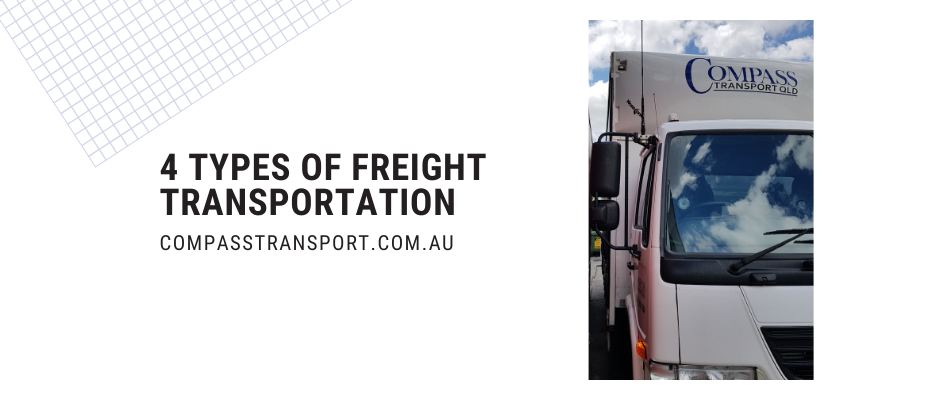
01 Feb 4 Types of Freight Transportation in Brisbane
If you’re looking to move your cargo in bulk, then there is nothing more important than making the right logistical choices. Your choice of route and provider, naturally, plays a major role, but so, too, does your choice of freight transportation.
Here, we’re going to look at the four types of freight transportation that are available in Brisbane. We’re going to look at what you need to know about each of your options, what their benefits are, and when they might be best suited to meet your specific logistical needs.
Less than Truckload (LTL)
One of the most commonly used forms of freight transportation, the less than truckload method allows the amount of space than your cargo needs which is, as the name implies, less than the total amount of space available on the truck used to transport it. This is particularly best used for smaller items that weigh in the ranges of below 20,000 pounds.
One of the biggest benefits of LTL transportation is that you can save money by having your goods delivered in the same truck as other products. You’re not paying for the entire cost of the trip, that’s being shared with several other clients at the same time. It’s also typically more secure than relying on courier or parcel services since you still benefit from the common use of shrink-wrapped pallets to secure your goods.
If you don’t need a full truckload of goods transported or the other advantages of the freight types mentioned below, LTL is likely to work best for you.
Truckload
As the name indicates, this form of freight transportation makes use of the entire volume of storage that a truck has to offer. This changes depending on the size of the truck, but usually we’re talking about freight that weights from 5,000lbs and upwards
One of the main benefits is that, if you need a lot of products transported, this is the most cost-effective way of doing it, and it also is typically quicker than LTL freight. This is because the truck isn’t going to be making stops at multiple stops in order to drop off multiple orders. It’s sent directly from where it picks up the freight to where you need to go.
If you’re transporting large volumes of products, then truckload freight is likely to be the most efficient option for you.
Intermodal
Less than truckload and truckload freight typically relies on filling up the containers attached to the back of a truck, filling them with your goods, and moving them. With intermodal freight, it typically uses ISO containers that are moved from one form of transport to another, including rail, ship, and road.
If you’re transporting goods across very long distances, then this can be one of the safest modes of transportation, since containers typically are not opened or directly handled except for on either end of the journey. Furthermore, it can be more cost-effective and more environmentally sound than relying on one form of transportation for the entire length of the trip.
Intermodal is best recommended if you’re transporting large volumes of goods, usually big enough to constitute a truckload, but you’re moving them over long distances or even from overseas.
Expedited
Perhaps the priciest form of road freight transportation, expedited freight is when your cargo is given absolute priority, and transported directly from the place it’s picked up to the place where you are. The cargo doesn’t have to take up a truckload of space, it’s still transported from one end to the other as quickly as possible.
As the name implies, this is likely to be the fastest way to move cargo when you need it. As a result, it’s likely to cost more than both less than truckload and regular truckload deliveries, but if you work on a tight supply chain that demands frequent deliveries, then this might be the solution that you need.
If you have any critical shipments, such as goods that need to be moved and sold or used in a very short amount of time, then expedited freight is your best bet to help you meet those needs.
Hopefully, you now better understand the four types of freight transportation in Brisbane, and just how each of them can be suited to different needs. Don’t hesitate to get in touch if you have questions about moving your cargo in Brisbane, whether it’s related to these types of freight or something else entirely.
